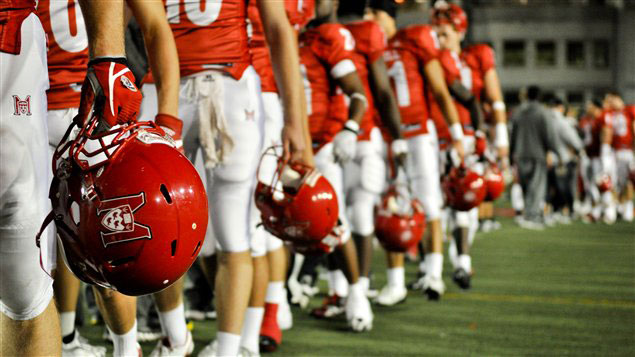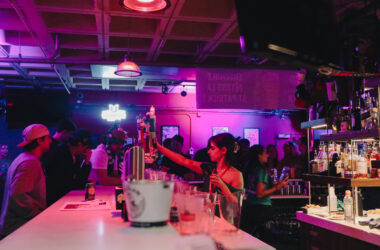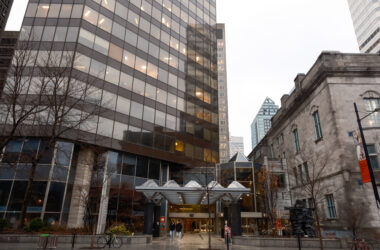On Nov. 8, the McGill Indigenous Studies Program and Students’ Society of McGill University (SSMU) Indigenous Affairs hosted a lecture by Columbia College Chicago Professor Richard King on indigenous stereotypes in sports. For over 25 years, King has researched racial politics and representation in sports, publishing several books on the topic.
While the origin of the ‘Redmen’ name is unclear to most students, the McGill Athletics website supports the claim that the name stems from founder James McGill’s Scottish roots and from when Celts and the Scots were known as ‘Red Men’ because of their red hair. Jozéphine Crimp, U2 Arts, attended the lecture to learn more about indigenous representation in sports in connection to the Change the Name campaign.
“McGill’s records clearly show that, in the past, this school had a [large number] of indigenous slurs used in connection to our varsity teams,” Crimp said. “Therefore, [McGill is] the furthest thing from innocent when it comes to a racist past.”
From naming the women’s hockey team the ‘Squaws’ in the 1970s, to the stylized logo appearing on the football and hockey equipment in the 1980s, McGill’s use of indigenous slurs and stereotypical imagery extends far back in the university’s sports history.
King discussed his past experience with inappropriate uses of indigeneity. While he was completing a PhD at the University of Illinois-Urbana Champaign, the mascot and symbol of the athletic teams was Chief Illiniwek. Intended to represent the state’s Native American heritage, the mascot dressed in Sioux regalia—despite the Sioux not historically populating Illinois—danced at halftime shows, and led the crowd in chants. According to King, these experiences inspired him to continue researching the topic.
“This honourific rendering of indigeneity was always accompanied by a kind of [representation] in which mimicry and mockery go hand in hand,” King said.
In King’s examples of indigenous logos and names, mimicry transforms into mockery. What worries him most is that, no matter the original purpose or origin of a team’s name, there exists the possibility to alter the meaning in a ‘dehumanizing’ way.
However, many alumni and athletic groups, such as Friends of McGill Hockey and Friends of McGill Football, believe the origin of the Redmen name deserves more respect and have mobilized in an attempt to keep it. Bruno Pietrobon, honourary president of Friends of McGill Football, spoke as a representative of the coalition.
“It is unfortunate that the name has been associated with any indigenous connotation,” Pietrobon said. “Even though that connotation was erroneously and regrettably attributed to the name at brief intervals [throughout more than] 140 years of McGill Athletics through the use of other names and imagery, the university acknowledged that, publicly apologized for it, and corrected it almost 30 years ago.”
To King, the context in which a team name is presented overshadows its specific origin.
“You can’t tell someone how to feel about a stereotype,” King said. “When you have a context in which people are belittled or dehumanized, it doesn’t matter what you intended. That’s what’s happening.”
With 78.8 per cent of students in favour of a name change according to the SSMU referendum which took place Nov. 9-12, Vice-President (VP) Internal Affairs Matthew McLaughlin affirmed SSMU’s support in an email to the student body.
“Tomorrow, and every day after it, we, as SSMU members, will continue to take every step necessary until McGill acknowledges the damage that the Redmen name has done, and addresses those damages by, first of all, changing it,” McLaughlin said.
Next month, the McGill administration will receive its final report on the history of the name from the Working Group on Principles of Commemoration and Renaming. According to an Oct. 23 email from McGill Provost Christopher Manfredi, the Board of Governors, which has the final decision-making power, will give a verdict shortly thereafter.









